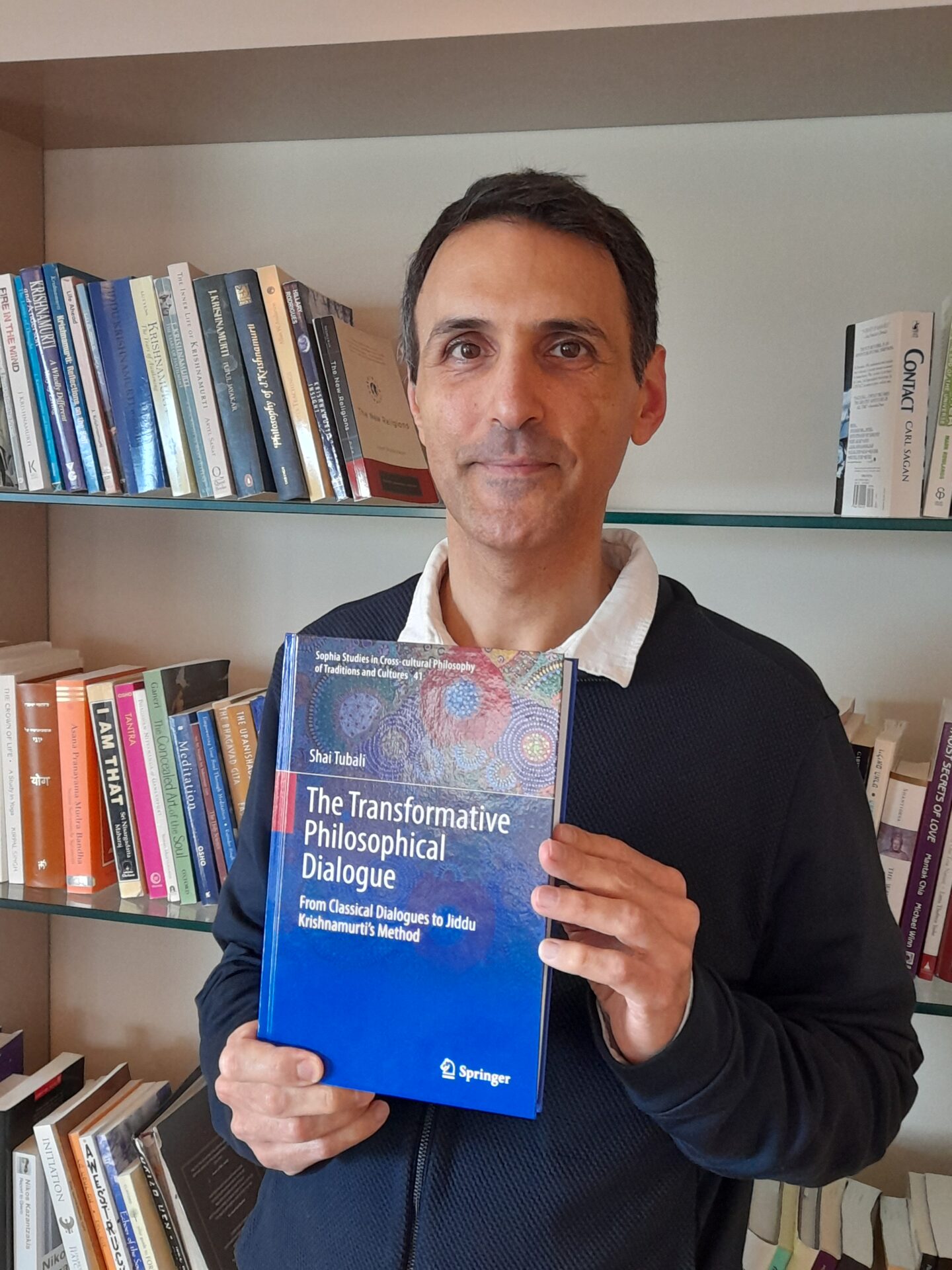The Transformative Philosophical Dialogue

Our LAHRI postdoctoral fellow, Dr Shai Tubali, recently published his monograph with Springer, The Transformative Philosophical Dialogue. From Classical Dialogues to Jiddu Krishnamurti's Method. In this blog post he tells us more about it.
Why do certain philosophical presentations and religious discourses take the form of dialogue? Are there certain goals which are attainable through dialogue but which other forms of investigation are unable to achieve? In what ways does dialogue fulfil philosophical and religious aims? And also, how far can it go – can the practice of philosophical and religious dialogue transform us?
My recently published monograph, ‘The Transformative Philosophical Dialogue’ (Springer, 2023), explores various dialogically oriented traditions – from the Upaniṣadic sages, the early Buddhists, Socrates, and Plato to Nāgārjuna and Śaṅkara, the Zen kōan masters, and Jiddu Krishnamurti. All these traditions have employed dialogue as a prominent tool for the collaborative discovery of truth. However, the truth that should be discovered in transformative dialogues does not lie in the realm of the cerebral; rather, it is the attainment of a certain existential consciousness that consequently alters the practitioner’s way of life.
My starting point is the Axial Age, a period in which both South Asian and Western philosophies were predominantly concerned with philosophy as transformation. These philosophies abounded with expressions of the philosophical and religious dialogue, whose mind- and life-altering destinations can easily be discerned. Since these traditions practised master–student dialogue as a pivotal component of their philosophical activity, analysis of their extant literatures has made it possible for me to outline the transcultural characteristics of the transformative dialogue.
Above all, as opposed to most forms of philosophical and religious discourse, transformative dialogues are not designed for a transmission of wisdom; on the contrary, their dialectical tools foster the transference of responsibility for the search for wisdom from the dialogue’s master-guide to the participants, who are pushed into realizing this wisdom within themselves using the power of their own intelligence.
The purpose of this book is to broaden our understanding of the possibilities of philosophical and religious dialogues by unveiling the method behind the unique dialogue developed by mystic and thinker Jiddu Krishnamurti (1895–1986). Krishnamurti’s method can be viewed as a continuation and a development of the transcultural tradition of transformative dialogue. He poured into his unique form of dialectic his rejection of the traditional teacher–student relationship by throwing questioners back on themselves. Like Socrates in the agora, Krishnamurti offered a process of questioning designed to block all ordinary pathways of thought with the intention to prepare the mind for an unfamiliar condition in which the activity of insight is made possible.
https://link.springer.com/book/10.1007/978-3-031-40074-2
